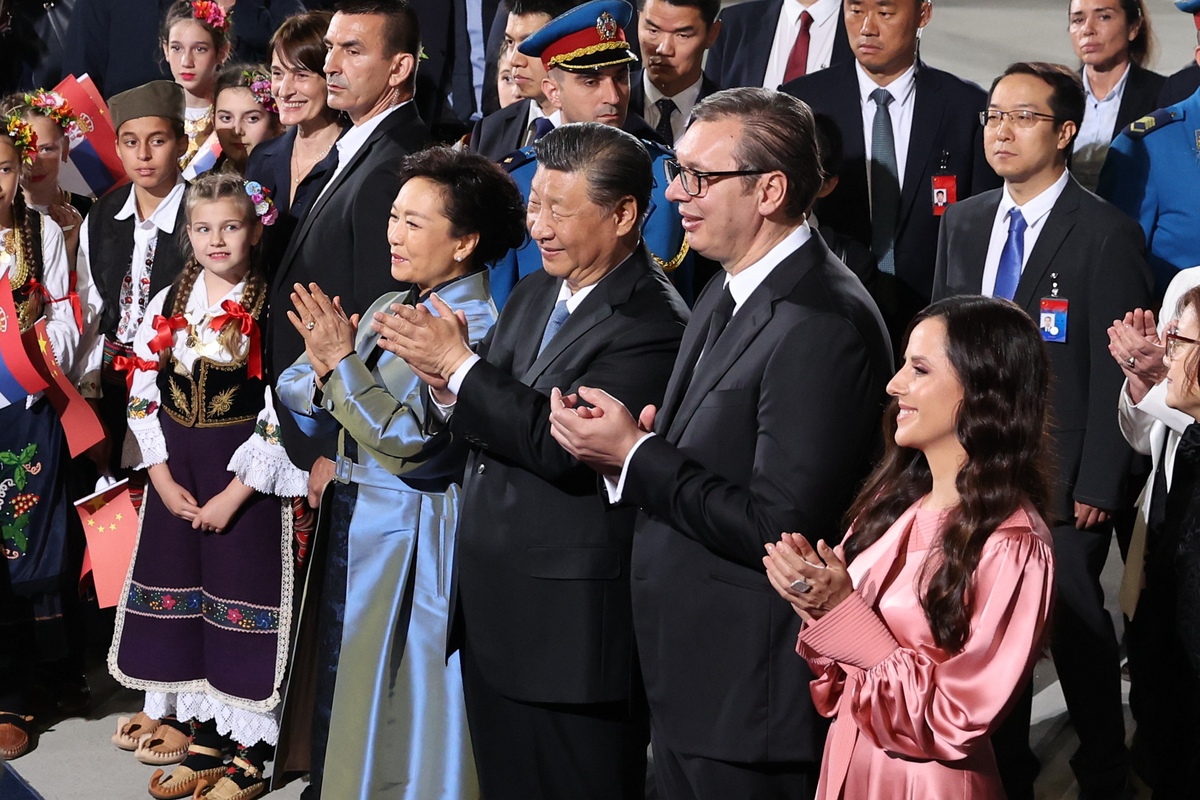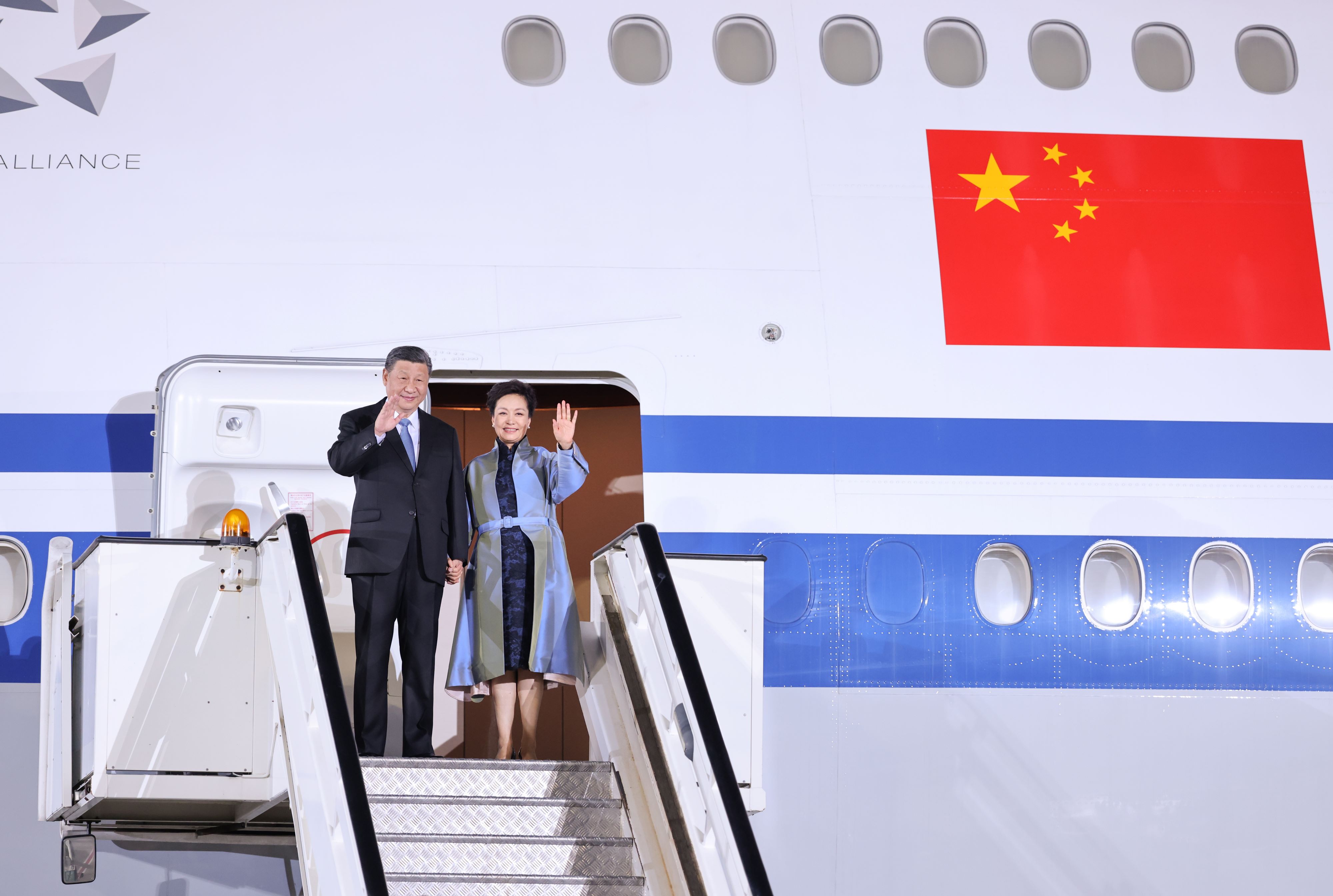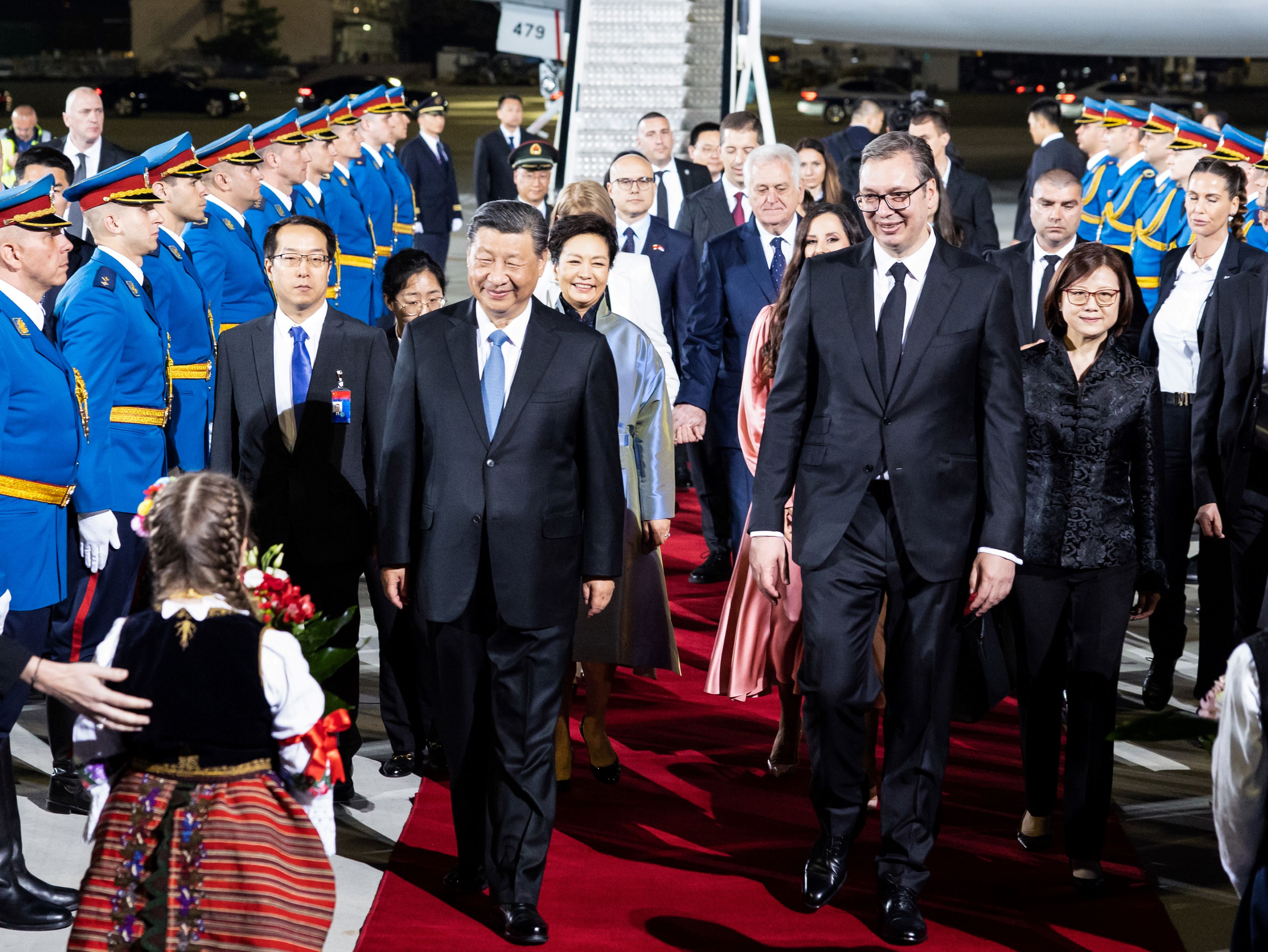
BELGRADE - Chinese President Xi Jinping kicked off his second state visit to Serbia on Tuesday night with the aim of fortifying the ironclad friendship between China and Serbia amidst evolving global dynamics.
Upon his arrival, Xi said China will work with Serbia to forge ahead together to open up a new vista in China-Serbia cooperation "with stronger momentum, greater scope, and higher quality".
Serbia has rolled out its red carpet for Xi. Among those welcoming Xi at the Belgrade Nikola Tesla Airport was his Serbian counterpart, Aleksandar Vucic. The two heads of state will hold meetings on Wednesday.
The China-Serbia friendship, forged with the blood of our compatriots, will stay in the shared memory of the Chinese and Serbian peoples, and will inspire us to march forward with big strides.
Xi Jinping, Chinese President
Two fighter jets were dispatched to escort Xi's plane upon its entry into Serbia's airspace. Over the past days, the streets of Belgrade have been richly ornamented with Chinese features, not least the flying Chinese national flags and waving banners.
READ MORE: Xi hails ever-growing ironclad China-Serbia friendship
In a signed article published Tuesday in Politika, a Belgrade-based Serbian daily, Xi wrote that the ironclad friendship between the two countries is ever-growing. "Whatever changes in the international landscape, China and Serbia remain true friends and good partners."
"Together we will build a China-Serbia community with a shared future in the new era," Xi wrote.
The Chinese president's arrival coincides with the 25th anniversary of the NATO bombing of the Chinese embassy in the former Federal Republic of Yugoslavia.
In 1999, the US-led NATO forces carried out savage airstrikes for 78 days against Yugoslavia, leaving more than 8,000 civilians dead or injured and nearly 1 million more displaced. On the night of May 7, exactly 25 years ago, NATO bombed the Chinese embassy, killing three Chinese journalists, including one from Xinhua.
"The Chinese people cherish peace, but we will never allow such tragic history to repeat itself," Xi wrote in the article. "The China-Serbia friendship, forged with the blood of our compatriots, will stay in the shared memory of the Chinese and Serbian peoples, and will inspire us to march forward with big strides."

Aleksandar Mitic, research fellow in International Relations at the Institute of International Politics and Economics in Belgrade, told Xinhua that the friendship, tempered by blood and fire, "will represent a cornerstone for cooperation in the future".
During Xi's last state visit to Serbia in 2016, Xi made the site of the old embassy his first stop to pay homage to the Chinese martyrs killed in the NATO bombing in 1999.
The ruins of the embassy have now been revamped into a Chinese cultural center for local residents in Serbia to learn both the Chinese language and traditional culture. The square outside the center was also renamed "Serbia-China Friendship Square".
Past years have seen the leapfrog growth of China-Serbia cooperation, with two-way trade in 2023 surging to $4.35 billion, Chinese customs statistics showed
Gordana, a local resident working nearby who didn't reveal her full name, referred to the bombing as a "painful memory" to her. "The cooperation between China and Serbia holds the promise of providing my children with a better life than I experienced," she told Xinhua.
READ MORE: Full text of Xi's signed article in Serbian media
Past years have seen the leapfrog growth of China-Serbia cooperation. Two-way trade in 2023 surged to $4.35 billion, Chinese customs statistics showed. In 2022, China became the largest source of direct investment for Serbia. In October 2023, witnessed by Xi and Vucic, China and Serbia signed a free trade agreement. After the deal takes effect, more than 60 percent of taxable items will become tariff-free immediately, and the final import volume proportion of both sides with zero-tariff items will reach about 95 percent.
Under the framework of the China-proposed Belt and Road Initiative are flagship projects such as the Smederevo Steelworks and the high-speed railway between Belgrade and Budapest. An integral segment of the Belgrade-Budapest railway is the high-speed train linking Belgrade and Serbia's second-largest city Novi Sad, which has transported some 6.83 million passengers over the past two years.

"We mainly cooperated in the field of transportation and energy field," said Katarina Zakic, head of the Regional Centre Belt and Road at the Institute of International Politics and Economics. In the future, cooperation will be important in the fields of green energy and e-commerce, she told Xinhua.
Already, Chinese companies and their Serbian counterparts are working on a number of green energy programs, such as the Saraorci Photovoltaic Project. Upon completion, the project will provide more than 16 million kilowatt-hours of green electricity every year and reduce carbon dioxide emissions by 16,000 tons.
ALSO READ: Xi's key message to Europe: Cooperation
Serbia, undoubtedly, stands as a reliable partner for China in Europe, said Aleksandar Vojvodic, head engineer of the Clean Serbia Project of China Road and Bridge Corporation.
There will be a promising prospect for further enhancement and expansion of existing cooperation, said Vojvodic.


